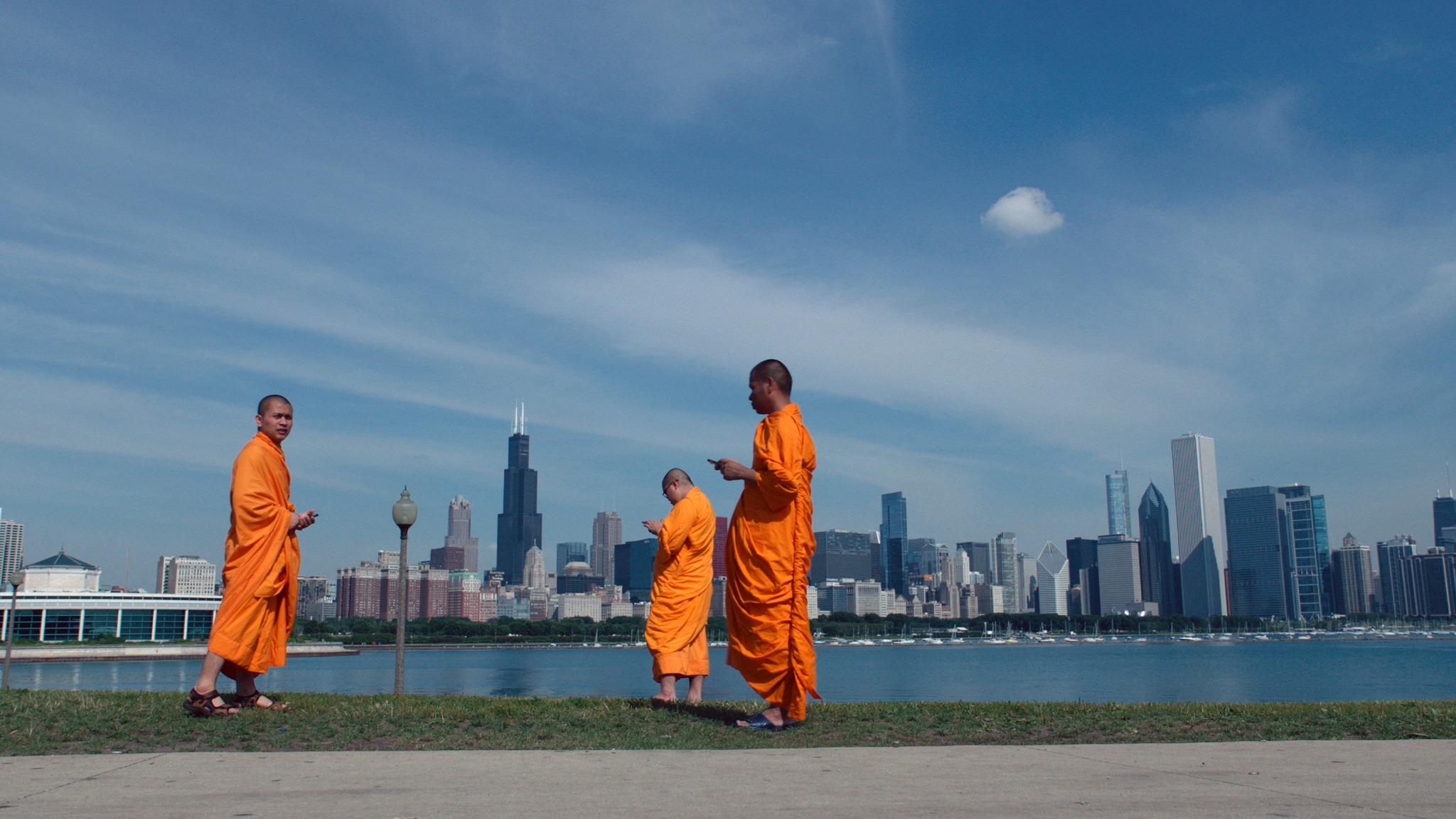
Before the Internet was just a part of everyday life–before it became a place to buy everything from books to jeans to roach killer, before it became a town hall where people could reconnect with old classmates and angry fanboys could vent their spleen, before it became a one-stop source for news, weather, sports and just about every useless factoid a person could care to look up–it was science. And there’s always poetry in science if you stop to listen and look for it.
There’s no documentary filmmaker better at stopping to listen and look than Werner Herzog, and with Lo and Behold, Reveries of the Connected World, he turns his ears and his gaze to the genesis and to possible future uses and meanings of what we used to so quaintly call the information superhighway. Herzog begins at the beginning, visiting the place where the Internet was born, a modest room at UCLA that still houses the blocky metal minicomputer from which the first online message was sent, in 1969. “This particular machine is so ugly on the inside, it is beautiful,” says our tour guide, Internet pioneer Leonard Kleinrock, a sprightly gent with a thatch of curly gray hair. Then he adds, “It has a unique odor, a delicious old odor, from all the old parts.”
Only a poet-scientist would care about how a piece of vintage computer equipment smells, and that’s the kind of detail Herzog, a true wack-bird genius, is so good at teasing out. Always off-camera but still intensely present, Herzog seeks out scientists and technicians who are busy perfecting driverless cars, pondering who will take the blame, humans or machines, when the inevitable accidents occur. He visits a group of people so sensitive to wireless signals that for their health and sanity, they’ve exiled themselves on a patch of land in West Virginia where wireless transmissions are restricted. He drops in on a grief-stricken family who became the victims of a cruel Internet prank, and learns about robots that could be programmed to counter nuclear disasters. Everywhere he goes, Herzog asks questions–smart ones, out-there ones–and the result is part celebration, part cautionary yellow light: Even Kleinrock, near the end of the film, laments that “computers and in some sense the Internet are the worst enemy of deep critical thinking.” And this is one of the guys who set the ball rolling.
Lo and Behold isn’t as visually arresting as, say, Cave of Forgotten Dreams, Herzog’s shimmering 3-D meditation on the prehistoric paintings of Chauvet, France. But as always, Herzog’s willingness to tread deeply into a strange new forest makes him the perfect guide for the rest of us, no matter where we sit on the tech-literacy scale. Plus, some of us would happily listen to Herzog read a 300-page dot-matrix printout of antique computer code, just to relish his distinctive vocal purr, as earthy and elegant as a truffle in the wild. Herzog approaches Elon Musk to learn about the polymath entrepreneur’s pie-in-the-sky plan to colonize Mars. Musk has barely finished before Herzog pipes up: “I would come along! I wouldn’t have a problem. A one-way ticket.” Musk, for once outweirded, sprinkles a droplet of cold water on Herzog’s enthusiasm, saying he thinks earthlings need to be able to come back from Mars in case it’s not to their liking. This is the saddest moment in the movie, not for Herzog but for us–because a documentary about colonial life on Mars, directed and narrated by pilgrim extraordinaire Werner Herzog, would be nothing short of heaven.
More Must-Reads from TIME
- Donald Trump Is TIME's 2024 Person of the Year
- Why We Chose Trump as Person of the Year
- Is Intermittent Fasting Good or Bad for You?
- The 100 Must-Read Books of 2024
- The 20 Best Christmas TV Episodes
- Column: If Optimism Feels Ridiculous Now, Try Hope
- The Future of Climate Action Is Trade Policy
- Merle Bombardieri Is Helping People Make the Baby Decision
Contact us at letters@time.com